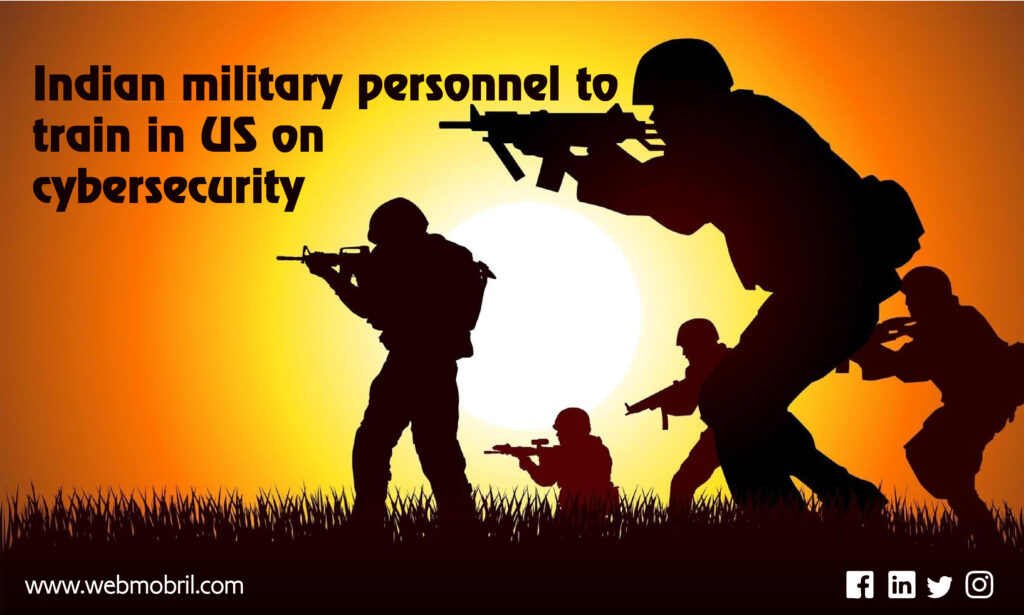With the concern of cyber-attacks threat rising against the Indian armed forces, the Department of Military Affairs (DMA) is planning to train its personnel in the latest cybersecurity technology and artificial intelligence (AI). Around 100 personnel will be sent to the US to get fortified for future warfare in the cyber world.
According to South Block officials, under the 2016 Cyber Framework and defence cooperation agreement, the US has offered training to up to 100 military personnel in Silicon Valley, giving them first-hand experience on how to counter cyber warfare and the role of AI in future defence and warfare.
The Indian military has its tri-service defence cyber agency under the integrated headquarters still, the government is in favor of setting up a proper cyber command in the hinterlands of Madhya Pradesh, so they can give the fighting edge to the proposed theatre commands. The proposed cyber command will tie a knot with the respective capabilities of all the three services- the army, navy, and airforce. This is to protect the military from getting susceptible to cyber-attacks from India’s adversaries.
The command’s charter will include the ways to ensure Indian military communications are secure, and systems are not adulterated with any malware by adversaries, in the forward formations like the sensitive Siliguri Corps, Tezpur Corps and the Northern Command including, the Ladakh Corps facing Tibet. In the past decade, the Siliguri Corps facing Chumbi Valley has suffered cyber-attacks through malware, where not only the software was corrupted, but also sensitive documentation was leaked to the malicious actors.
Even in April this year, while addressing the situation of the clash between the India and China on the Line of Actual Control (LAC), Chief of Defence Staff (CDS) Bipin Rawat expressed his concern about the increasing threats from China as a repercussion of LAC tensed situation. He said, “China is capable of launching cyber-attacks on us that can disrupt a large number of our systems.” This statement from India’s senior-most armed forces official was based on deep-rooted research and studies about potential threats on cyber-security and past incidents.
Not to forget, last year’s huge power outage in Mumbai that left the city reeling for hours became a sensation when a report from Recorded Future, a cybersecurity firm based out of the US, revealed that the chaos was allegedly caused by a new coalition of Chinese hackers dubbed ‘Red Echo’.
While talking to the media in April, Gen. Rawat said, “in today’s day and age wars are not fought on the battlefield but in cyberspace. Malware is ammunition, hackers and cybersecurity experts are the soldiers, and what they are fighting over is data.”
Cyber security is being taken seriously by national security planners as the Chinese People’s Liberation Army (PLA) and the Ministry of State Security have the high-end capability to target the rival through new age weapons.
As told by Chief of Defence Staff, AI, cyber warfare, armed drones and standalone weapon systems being part of warfare, it is essential for the cyber military command to scrap the World War II concepts of strike and defending corps and rather prepare for a future where war seamlessly shifts from missile to cyber-attacks.

